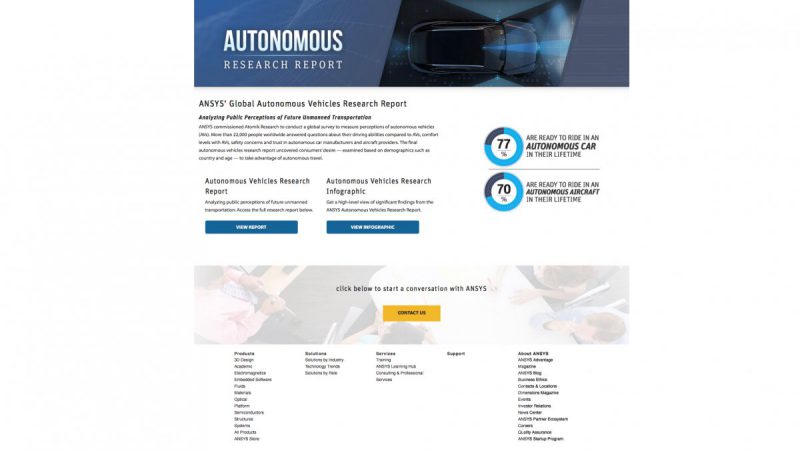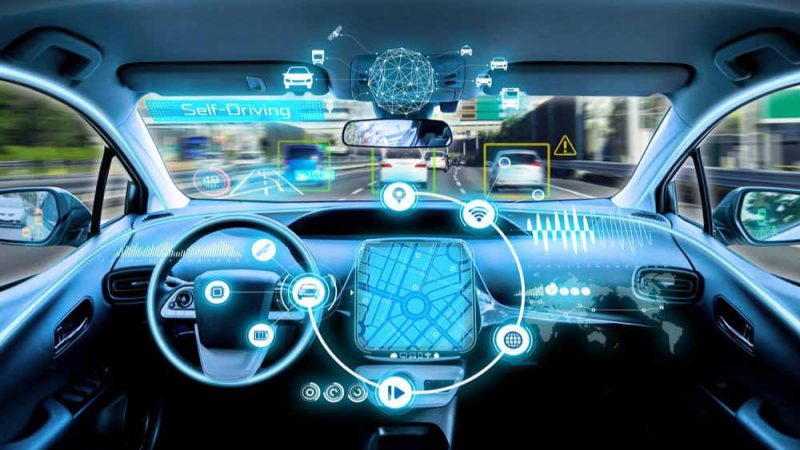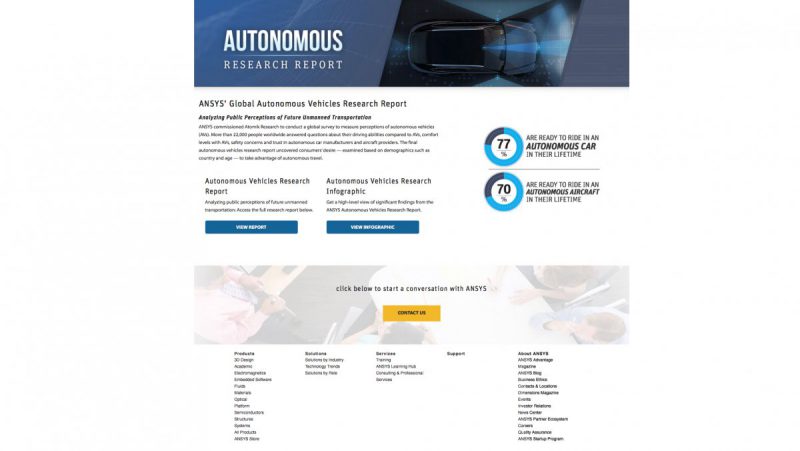Will Self-Driving Cars Soon Outperform Humans?
New study reveals consumer perceptions and expectations of autonomous vehicles as pace of development quickens
September 30, 2019


Seven out of 10 consumers believe autonomous cars drive better than humans or will surpass human abilities by 2029, according to a worldwide consumer survey commissioned by the ANSYS Global Autonomous Vehicles Report. ANSYS commissioned the survey to gauge global consumer perception of AVs and better understand expectations for the future of travel.
The report provides an expansive analysis into public perceptions and confirms consumers have high expectations for autonomous capabilities and that consumers are comfortable with the idea of riding in autonomous cars and aircraft in their lifetime.
Highlights from the report:
• Consumer Faith: Seventy-one percent of global respondents believe autonomous cars are better at driving than humans or will surpass human abilities within 10 years.
• Embracing AVs: Japanese respondents were more confident in AVs than the global average; 83% believe autonomous cars will be better drivers than humans within a decade and 38% believe they already are.
• Ready to Ride: Seventy-seven percent of global respondents would be comfortable riding in an autonomous car at some point during their lifetime.
• Young Adopters: Eighty-seven percent of 18- to 24-year-old respondents and 88% of 25- to 34-year-old respondents reported feeling comfortable with autonomous cars in their lifetime. Forty-three percent of respondents over the age of 65 said they would never ride in an autonomous car.
• Highs and Lows: At 97%, Chinese respondents were most open to riding in an autonomous car during their lifetime. By contrast, just 57% of respondents from the United Kingdom said they would be comfortable riding in an autonomous car.
• Exploring Anxieties: When asked their top concern for riding in autonomous cars and planes, most respondents said technology failure at 59% and 65%, respectively.
• Trust in Car Manufacturers: Twenty-four percent of respondents believe luxury car companies would offer the safest autonomous driving experience, followed by technology companies that may one day offer an autonomous car (20%) and non-luxury brands (16%).
Autonomous cars require billions of miles of road tests across a vast number of driving conditions to ensure consumer safety, which cannot be accomplished in our lifetime with physical testing alone. Simulation has reduced the need for physical road tests and is the only way engineers can more quickly test thousands of AV travel scenarios, maximize the performance of sensors and perception algorithms and ensure safety.
“Automated driving has been a dream of engineers and travelers since at least the 1950s, but the hardware and software required to make it a practical reality has only approached a sufficient level of maturity in the past decade,” said Sam Abuelsamid, principal research analyst, Navigant Research. “For automated driving to become a commercial reality that people trust for safe transportation, consumers will need to be convinced that algorithms can consistently drive more reliably than humans. That will require vast amounts of simulation testing to augment hundreds of millions of miles of real-world, on-road evaluation.”





